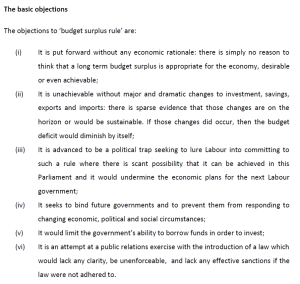An Introduction to Post-Keynesianism
I recently attended a 3 day Post-Keynesian Study Group (PKSG) workshop at Kingston University, and here is some of what I learnt on the course. I am sure this will spawn many other research interests, leading to future blog articles on some of the theory discussed.
Day 1
The course was to be split up into 3 days, on the first day we would cover Post-Keynesianism, on the second we would continue with PK and financial crises in the morning, followed by Marxist Political Economy in the afternoon and then on the final day we would round off what we had learned, ask any further question and debate the success of student movements in encouraging pluralism. [...]

